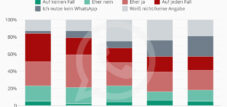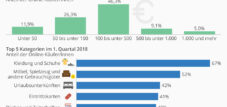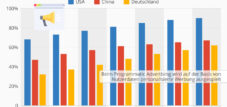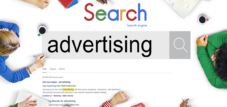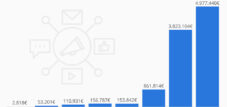How we perceive advertising in Germany: Free content vs. advertising freedom - A dilemma for German Internet users
Language selection 📢
Published on: September 29, 2024 / update from: September 29, 2024 - Author: Konrad Wolfenstein
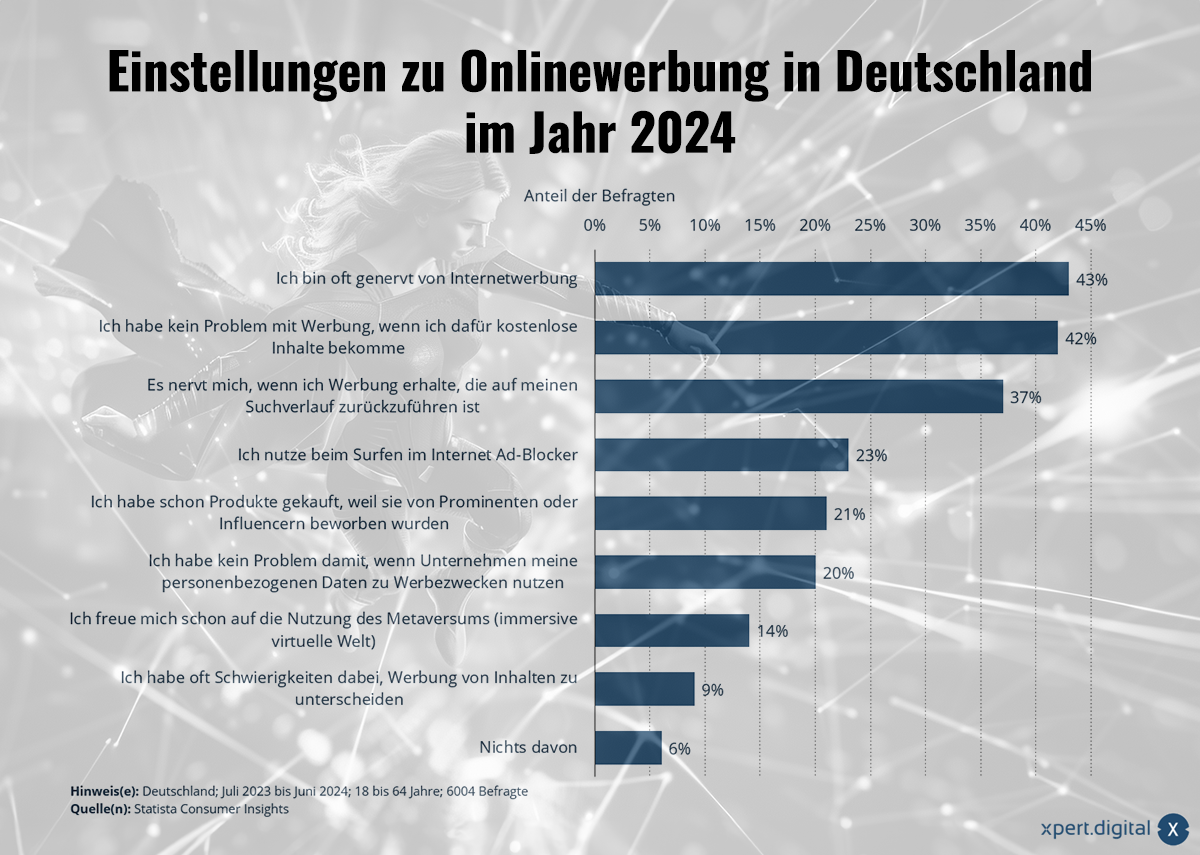
How we perceive advertising in Germany: Free content vs. advertising freedom - A dilemma for German Internet users - Image: Xpert.Digital
📱💻 Consumer perception and behavior towards online advertising
📈📱 Consumers' perception and behavior towards advertising has changed significantly in recent years. Largely due to the increasing growth of the Internet and ubiquitous access to online content, the way advertising reaches people has also changed. Advertising on the Internet is ubiquitous today, but this does not mean that it always meets with approval. Consumers have different views and behaviors when it comes to online advertising, and this varies depending on factors such as age, gender and technological affinity.
🤯 Consumers are often annoyed by internet advertising
One of the most noticeable trends regarding Internet advertising is the widespread annoyance of users. 43% of people surveyed stated that they often feel disturbed by Internet advertising. This shows that a significant proportion of consumers are increasingly hostile to the massive presence of online advertising. This poses a major challenge for advertisers: despite this negative attitude, how can they capture consumers' attention without angering them?
One possible approach lies in the personalization of advertising. But this is also a double-edged sword, as will be shown in the following sections. There is a fine line between useful, user-tailored advertising and intrusive, more off-putting advertising.
📺 Free content in return for advertising
Despite the frustration with online advertising, the acceptance of accepting advertising in exchange for free content is quite high. 42% of consumers say they have no problem with advertising as long as it allows them to access content for free. This highlights the importance of the so-called “value for ad” approach, where consumers are offered clear benefits in the form of free content if they tolerate advertising.
This is an established model for platforms such as YouTube, Spotify and many news portals. Users know that if they use free versions, they have to accept advertising. This compromise seems to be acceptable for a large proportion of consumers. This continues to create great opportunities for brands and advertisers to reach audiences through targeted ads.
🎯 Personalized advertising: A fine line
Interestingly, the survey shows that 37% of consumers are annoyed when they receive advertising based on their previous search history. These numbers reveal a certain ambivalence towards personalized advertising. On the one hand, many users want ads that are relevant and tailored to their interests. On the other hand, for many, the direct connection between their online activities and the ads they see appears to create an invasive feeling of surveillance.
The challenge for companies is to find a balance. Users want relevant content, but they don’t want to feel like they’re being watched. Transparency and privacy policies that clearly communicate how data is used could help gain user trust.
🚫 Use of ad blockers as a countermeasure
Because of their frustration with intrusive or inappropriate advertising, many consumers turn to technical tools to protect themselves from advertising. 23% of people surveyed use ad blockers to prevent unwanted advertising. This presents a significant challenge for advertisers, as the proliferation of ad blockers effectively renders a growing number of users “invisible” from advertising campaigns.
For advertisers, this means that traditional display ads or pop-ups are becoming less and less effective. It is therefore all the more important to develop innovative advertising strategies that bypass ad blockers and at the same time do not annoy users. Native advertising, where ads are seamlessly embedded into the content, and sponsored content could offer a solution here.
🌟 Influence of celebrities and influencers
Celebrities and influencers have gained significant influence on consumer purchasing behavior in recent years. 21% of people surveyed have purchased products promoted by celebrities or influencers. This shows the growing importance of influencer marketing in today's advertising landscape.
Influencers have an enormous influence on their followers, especially on social networks such as Instagram, YouTube and TikTok. This type of advertising often appears more authentic and less intrusive because the recommendations come from people that users trust and identify with. Brands that successfully work with influencers can benefit from their reach and credibility to reach their target audiences.
🔒 Acceptance of data use for advertising purposes
Although many people are skeptical about the use of their data, there are still a significant number of users who are comfortable with their personal data being used for advertising purposes. 20% of consumers surveyed see this as acceptable. This number could indicate a growing acceptance of data use, especially when it is done transparently and ethically.
For companies, this means they can build trust through clear and transparent communication about the use of user data. Privacy policies that are easy to understand and visible could help alleviate consumer concerns.
👾 Interested in the Metaverse
With the rapid development of new technologies and platforms, interest in the Metaverse is also growing. 14% of respondents are already looking forward to using the Metaverse, a virtual world that offers immersive experiences. For companies and advertisers, the Metaverse offers new opportunities to design innovative advertising campaigns and interact with users in a completely new way.
Generation Z and Millennials in particular show a strong interest in new virtual worlds that go beyond traditional media. Brands that invest early in the metaverse and establish their presence there could gain a significant competitive advantage as this technology continues to gain traction.
🕵️ Difficulty distinguishing between advertising and content
Another challenge in the modern advertising landscape is the increasing difficulty for consumers to distinguish between advertising and editorial content. 9% of consumers surveyed say they often have difficulty distinguishing advertising from content. This highlights the potential of native advertising, where advertising is designed to fit seamlessly into the editorial context.
However, this type of advertising also brings with it ethical questions. Consumers should be able to clearly see whether it is a paid advertisement or an independent editorial contribution. Brands that don’t communicate this clearly risk losing the trust of their audiences.
📊 Growing importance of influencers and interest in the metaverse
The consumer landscape when it comes to internet advertising is complex and full of challenges. While some users are willing to accept advertising if they get something in return, many feel annoyed by intrusive and inappropriate advertising. Ad personalization can provide a solution, but it must be used carefully to avoid annoying users.
The use of ad blockers shows that consumers increasingly want control over their online experience. Brands must therefore find innovative and non-invasive forms of advertising in order to effectively reach their target groups.
The growing importance of influencers and interest in the Metaverse offer new opportunities for companies to interact with their audiences in authentic and immersive ways. At the same time, they must ensure that their advertising strategies are transparent and do not undermine consumer trust.
The future of advertising will increasingly depend on brands' ability to deliver relevant and engaging content while respecting users' privacy and preferences. This is the only way they can be successful in an increasingly saturated advertising landscape.
📣 Similar topics
- 📊 Changes in consumer behavior
- 🖥️ The Internet and advertising
- 😠 Annoyed consumers through online advertising
- 🎯 Personalized advertising: opportunities and risks
- 🔄 Acceptance of free content in exchange for advertising
- 📑 Data protection and transparent communication
- ❌ Use of ad blockers as a protective measure
- 🧑🎤 Influence of influencers on purchasing decisions
- 🌌 Interest in the Metaverse and its possibilities🔍 Difficulty distinguishing between advertising and content
#️⃣ Hashtags: #ConsumerBehavior #OnlineAdvertising #PersonalizedAdvertising #AdBlocker #InfluencerMarketing
Our recommendation: 🌍 Limitless reach 🔗 Networked 🌐 Multilingual 💪 Strong sales: 💡 Authentic with strategy 🚀 Innovation meets 🧠 Intuition
At a time when a company's digital presence determines its success, the challenge is how to make this presence authentic, individual and far-reaching. Xpert.Digital offers an innovative solution that positions itself as an intersection between an industry hub, a blog and a brand ambassador. It combines the advantages of communication and sales channels in a single platform and enables publication in 18 different languages. The cooperation with partner portals and the possibility of publishing articles on Google News and a press distribution list with around 8,000 journalists and readers maximize the reach and visibility of the content. This represents an essential factor in external sales & marketing (SMarketing).
More about it here:
📜 The historical development of online advertising in Germany
📊 Since the early days of the internet, the way advertising is presented has changed drastically. Initially it was simple banners and pop-up ads that hardly bothered users. However, over time, forms of advertising became more aggressive and targeted. The introduction of tracking technologies and personalized advertising has revolutionized the advertising industry, but has also raised privacy concerns.
🌍 The ubiquity of advertising in the digital space
Advertising has become an integral part of the Internet. It funds a variety of services and content that would otherwise not be available for free. Whether on news portals, on social media or on video streaming platforms – we encounter advertisements in different forms everywhere. For many users, however, this omnipresence leads to sensory overload and significantly reduces the surfing experience.
⚖️ The ambivalence of German users towards advertising
German internet users have an ambivalent relationship with online advertising. On the one hand, they understand that advertising is necessary to enable free content. On the other hand, they find many forms of advertising disruptive or invasive. Particularly intrusive pop-ups, autoplay videos or misleading ads are rejected. This ambivalence means that more and more users are taking measures to block or minimize advertising.
🔓 The spread of ad blockers
Germany is one of the countries with the highest ad blocker usage in the world. Many Internet users install such tools to enjoy an undisturbed surfing experience. However, this poses a problem for content providers that rely on advertising revenue. Some websites respond by restricting access to ad blocker users or asking them to disable ad blocker. This game of cat and mouse shows the complexity of the issue and the need for new approaches to solving it.
💼 Premium models and paywalls
In response to the increasing use of ad blockers, more and more providers are turning to premium models. For a fee, users get access to ad-free content and additional features. Streaming services like Netflix or music platforms like Spotify Premium are examples of successful implementations of this model. Many news portals also offer exclusive content behind a paywall. But the willingness to pay for digital content is comparatively low in Germany. Many users are looking for free alternatives or find the large number of subscriptions financially burdensome.
🔒 Privacy concerns and personalized advertising
Another important aspect is data protection. Many advertising providers use tracking technologies to analyze user behavior and serve personalized advertising. In Germany, where awareness of data protection is particularly high, this is met with skepticism. The idea that personal data is being collected and used without clear consent is uneasy. While the introduction of the General Data Protection Regulation (GDPR) has led to greater transparency, it has also increased complexity as users are more often confronted with cookie banners and consent forms.
🧠 The psychology of advertising and its effect on users
Advertising not only influences purchasing behavior, but also attitudes and opinions. Through repeated messages and emotional appeal, advertising campaigns can achieve profound effects. However, German users are often critical of manipulative advertising strategies. They value authenticity and transparency. This attitude means that alternative forms of advertising such as content marketing or influencer marketing, in which products are presented in a credible context, are becoming increasingly important.
📱 The role of social media and influencers
Social media has once again changed the nature of advertising. Influencers reach large audiences with their personal brands and can promote products in ways that are unattainable for traditional advertising. In Germany, influencer collaborations have become more important, but there are also debates about labeling advertising and responsibility towards younger followers. Transparency and authenticity are key to gaining and maintaining user trust.
🌐 International comparison and cultural differences
An international comparison shows differences in the acceptance of advertising and the willingness to pay for content. While in some countries, such as the USA, users are more willing to accept personalized advertising and pay for digital content, German users are often more reluctant. Cultural factors, economic conditions, and historical distrust of data misuse contribute to these differences.
💡 The concept of “paying with data”
An often overlooked aspect is that users often “pay” with their data for free services. Platforms such as Facebook or Google offer their services free of charge, but collect extensive data about their users to switch targeted advertising. This business model raises ethical questions and leads to discussions about the appreciation of personal data. In Germany, awareness of this is growing, and there is an increasing demand for data protection -friendly alternatives.
🛠️ Possible solutions to the dilemma
Solving the dilemma between free use and freedom from advertising requires creative approaches:
Hybrid models
Combination of ad-supported and paid content that allows users to choose whether to see or pay for advertising.
Relevant and non-invasive advertising
Improving the quality of advertising to make it less disruptive and more relevant to the user.
Transparency and control
Giving users more control over their data and the type of advertising they see.
Promotion of micropayments
Introducing systems where users pay small amounts for individual content without having to commit to a subscription.
🔮 The future of online advertising in Germany
The future of online advertising depends on the ability of everyone involved to adapt to changing user needs. Technological innovations such as artificial intelligence could help make advertising more effective and less disruptive. At the same time, legal frameworks and ethical standards must be further developed to ensure the protection of users.
🎭 Free to use and ad-free
The dilemma between free use and freedom from advertising remains a central issue for German Internet users. It reflects the complex relationships between users, providers and advertisers. In order to resolve this area of tension, compromises and innovative approaches are required. Ultimately, the balance between free availability of content and protecting users from excessive or invasive advertising will be crucial for the future of the Internet in Germany.
📣 Similar topics
- 📅 The historical development of online advertising in Germany
- 🌐 The ubiquity of advertising in the digital space
- 🤔 The ambivalence of German users towards advertising
- 🔒 The spread of ad blockers
- 💰 Premium models and paywalls
- 🛡️ Privacy concerns and personalized advertising
- 🧠 The psychology of advertising and its effect on users
- 📱 The role of social media and influencers
- 🌍 International comparison and cultural differences
- 🧩 The concept of “paying with data”
#️⃣ Hashtags: #OnlineAdvertising #Privacy #AdvertisingFreedom #Adblocker #SocialMedia
We are there for you - advice - planning - implementation - project management
☑️ SME support in strategy, consulting, planning and implementation
☑️ Creation or realignment of the digital strategy and digitalization
☑️ Expansion and optimization of international sales processes
☑️ Global & Digital B2B trading platforms
☑️ Pioneer Business Development
I would be happy to serve as your personal advisor.
You can contact me by filling out the contact form below or simply call me on +49 89 89 674 804 (Munich) .
I'm looking forward to our joint project.
Xpert.Digital - Konrad Wolfenstein
Xpert.Digital is a hub for industry with a focus on digitalization, mechanical engineering, logistics/intralogistics and photovoltaics.
With our 360° business development solution, we support well-known companies from new business to after sales.
Market intelligence, smarketing, marketing automation, content development, PR, mail campaigns, personalized social media and lead nurturing are part of our digital tools.
You can find out more at: www.xpert.digital - www.xpert.solar - www.xpert.plus







